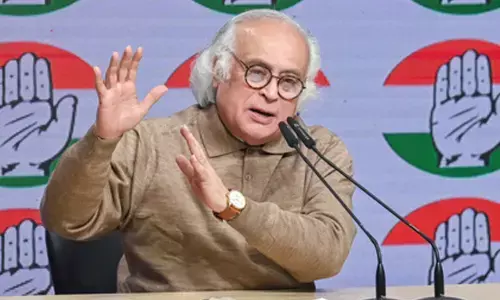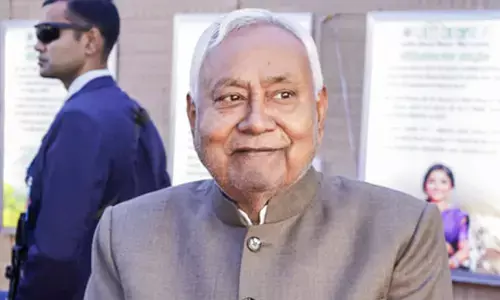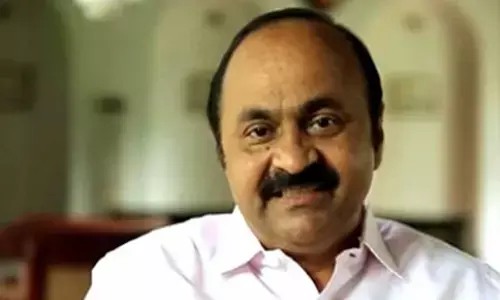In His Master’s Steps

In His Master’s Steps, Kuchipudi Kalakshetra, Guru Hari Rama Murthy. Guru Hari Rama Murthy was born in the village of Kuchipudi, in a family of traditional Kuchipudi dancers.
Heading the Kuchipudi Kalakshetra in Visakhapatnam as its Principal, Guru Hari Rama Murthy is noted for grooming his students with rigorous training in the traditional Kuchipudi, retaining Guru Vempati Chinna Satyam’s distinguished baani.
 Guru Hari Rama Murthy was born in the village of Kuchipudi, in a family of traditional Kuchipudi dancers. With legendary ancestors like late Hari Ponnaiah and Hari Chalapathi on the paternal side and late Chinta Venkatramaiah and Chinta Ramamurthy on the maternal side, his future path was already decided. But he started his formal education in dance only at the age of 15, after his schooling. His initial training at Siddhendra Yogi Kalapeetham under Pasumarthy Krishna Sharma, Chinta Ramamanatham and later under Padmabhushan Dr Vempati Chinna Satyam at Kuchipudi Art Academy- Chennai, prepared him for a bright future with a solid foundation. Diplomas in Kuchipudi and Yakshaganas at Potti Sriramulu Telugu University further added to his learning.
Guru Hari Rama Murthy was born in the village of Kuchipudi, in a family of traditional Kuchipudi dancers. With legendary ancestors like late Hari Ponnaiah and Hari Chalapathi on the paternal side and late Chinta Venkatramaiah and Chinta Ramamurthy on the maternal side, his future path was already decided. But he started his formal education in dance only at the age of 15, after his schooling. His initial training at Siddhendra Yogi Kalapeetham under Pasumarthy Krishna Sharma, Chinta Ramamanatham and later under Padmabhushan Dr Vempati Chinna Satyam at Kuchipudi Art Academy- Chennai, prepared him for a bright future with a solid foundation. Diplomas in Kuchipudi and Yakshaganas at Potti Sriramulu Telugu University further added to his learning. Hari Rama Murthy is in great awe of his guru, Late Vempati Chinna Satyam and is all praise for his contribution to the Kuchipudi dance form. Every word that he utters about his mentor reflects gratitude and reverence. Recollecting his initial journey, “Those days we had a lot of time at our disposal and no diversions, so we could concentrate fully on dance with total commitment.
Vempati mastergaru taught us dance free of cost. He also got me a scholarship. We used to get up early, cook our food and be at his classes by 9 am. It would go on till 5 pm. We received tough and rigorous training without any compromises or shortcuts. Now I try to instill the same discipline in my students and insist on hard work. Whatever time that is available, they have to fully make use of it, and hone their skills to perfection.” Hari Rama Murthy’s own choreography, “Mohini Bhasmasura” is a much acclaimed dance drama, with a close semblance to Vempati’s compositions.
 “Mastergaru used to insist on rehearsals for every show even after performing ‘Sreenivasa Kalyanam’ more than 100 times. That was his level of perfection and preparation. We never did mind practicing the same item for years together, whereas the present day students want to proceed further, without mastering the previous one. He used to take us abroad for performances and bear all the expenditure including flight tickets etc, in addition to paying us for the performances.”
“Mastergaru used to insist on rehearsals for every show even after performing ‘Sreenivasa Kalyanam’ more than 100 times. That was his level of perfection and preparation. We never did mind practicing the same item for years together, whereas the present day students want to proceed further, without mastering the previous one. He used to take us abroad for performances and bear all the expenditure including flight tickets etc, in addition to paying us for the performances.”Playing principal roles in the dance dramas of Guru Vempati Chinna Satyam, he has earned a name for portraying a variety of characters with diverse traits. Especially, he excelled in placid roles like Dasaratha, Narada, Ananda, Kanva Maharshi, Balichakravarthy, brutal ones like Kamsa, Rukmi and valiant ones like Arjuna, Indra and Bhagiratha.
He has performed abroad and in India extensively. He presented ballets in the prestigious dance festivals like Konark, Khajuraho, Sangeet Natak Academy and in the Festivals of India in USSR, Germany, First World Music and Theatre Festival- Amsterdam, Kennedy Centre- USA, Germany, Australia, New Zealand, and Singapore. His dancer wife Satya Bhanu also takes part in his productions, contributing in a big way.
On performing abroad:
 “When we present our ballets in the US, it is just like being at home. People with sound knowledge of our culture and mythology attend our shows. We have the satisfaction of reaching out to the audience who understand and appreciate the theme, story, lyrics and music. But when we performed with Vempati Mastergaru in Belgium and Amsterdam, it was entirely different. Those audiences were totally new to our language, culture and dance. So the organisers approached us in advance and asked for the storyline, dialogues etc and had them scrolling as the ballet was in progress. The viewers could understand everything that was happening on stage and enjoyed it thoroughly. This gave us a very satisfactory feeling and made us proud that we were taking our culture to other countries. Unless the spectators enjoy what we are presenting, we don’t get inspired.”
“When we present our ballets in the US, it is just like being at home. People with sound knowledge of our culture and mythology attend our shows. We have the satisfaction of reaching out to the audience who understand and appreciate the theme, story, lyrics and music. But when we performed with Vempati Mastergaru in Belgium and Amsterdam, it was entirely different. Those audiences were totally new to our language, culture and dance. So the organisers approached us in advance and asked for the storyline, dialogues etc and had them scrolling as the ballet was in progress. The viewers could understand everything that was happening on stage and enjoyed it thoroughly. This gave us a very satisfactory feeling and made us proud that we were taking our culture to other countries. Unless the spectators enjoy what we are presenting, we don’t get inspired.”On the need to adapt:
“Forty- fifty years ago, Kuchipudi performances were confined to temples and during the Dasara festivities. Bhamakalapam used to go on for almost a week. But now people have no time to sit and watch lengthy shows, so everything is concise. Sometimes the organisers are hard pressed for time and allot us only 15 minutes. This art is so vast, how can you establish and prove in mere 15 minutes? In this “speed world” no one has the time or patience.” “Take for example, live orchestra. When we dance to a live orchestra, we dance from our hearts, whereas, with the recorded music it is just ‘switch on and switch off.’ But it is imperative to change with the times and adapt ourselves accordingly; making the best use of technology that is available today.”
On innovation :
“Yes, novelty is necessary, but in the process, tradition should not suffer. Vempati Mastergaru took up a social theme many years ago in ‘Chandalika’, but the presentation was purely classical in approach and execution. The only difference being, the lyrics were in a simple language, unlike the highly literary compositions in the traditional ballets. He has not changed anything except the theme.”
Next Story









